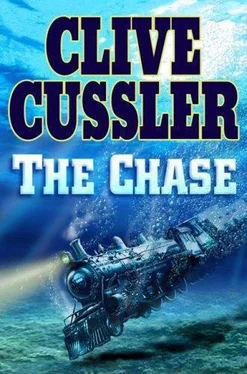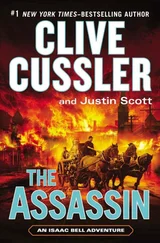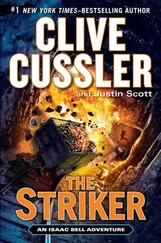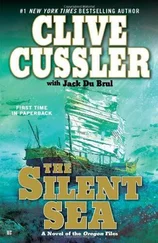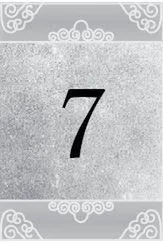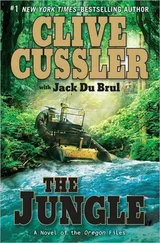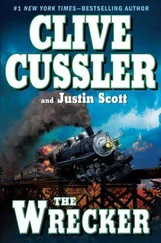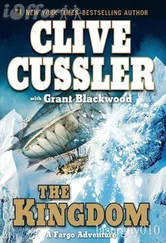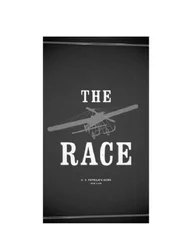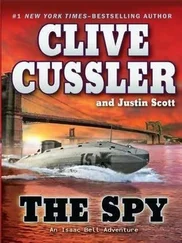Curtis referred to his notes. “Number 18122 was present at Elkhorn, Nevada, and Grand Junction, Colorado, when their banks were robbed. It was on the siding at Grand Junction waiting to be switched to a train to take it to Los Angeles. Its cargo was sixty cases of wine. At Elkhorn, it carried a load of mattresses, from a factory in Sacramento, California.”
“So much for 18122,” said Irvine. “It’s not likely the bandit escaped to different locations.”
Curtis fairly beamed. “I saved the best for last.” Rising and walking to a blackboard, he wrote O’BRIAN FURNITURE COMPANY, DENVER on the black surface. Then he turned with a pleased expression on his face. “Now we come to a boxcar that was present at five robberies.”
Both Bell and Irvine sat up suddenly in their chairs as Curtis caught their fixed attention. The agent had taken the bull by the horns and delved into an area no one had thought to go.
Bell, surprised at Curtis’s unexpected revelation, said, “The car was in five towns on the day their banks were robbed?”
“I’ve made a list of towns, times, and its final destination.”
Irvine nearly spilled his coffee as he set it back on the tray. “Don’t you mean destinations, plural?”
“No. Destination, singular.” Curtis laughed softly. “In every instance, the furniture car from Denver went to San Francisco. I could find no record of it ever having been hauled to Denver or anywhere else. I can only assume it was a façade the bandit used to escape the posses.”
Bell stared at the writing on the blackboard. “I’ll bet a month’s pay that a check of furniture stores in Denver will prove O’Brian Furniture does not exist.”
“I think that goes without saying,” Irvine summed up.
Bell turned to Curtis. “When was the last Southern Pacific Railroad account of the car?”
“It was put on a siding in the San Francisco railyards two weeks ago. At my last inquiry, it was still there.”
“Then we’ve got to find and search it.”
“And stake it out,” said Irvine.
“That, too,” replied Bell. “But we must be very careful not to alert the bandit that we’re closing in on him.”
Curtis lit another cigarette. “I’ll leave on the first train in the morning for San Francisco.”
“Irvine and I will join you.” Bell then turned his attention to Irvine. “You mentioned that three bills turned up in San Francisco.”
Irvine nodded. “That’s right. One at the Cromwell National Bank of San Francisco and two at the Crocker National Bank.”
Bell smiled for the first time. “It would seem, gentlemen, all roads lead to San Francisco.”
“It’s beginning to look that way,” Curtis agreed, his enthusiasm growing.
The two agents stared expectantly at Bell as he studied the map with the flags marking the terrible crimes committed by the Butcher Bandit. The evidence was almost infinitesimal and could easily lead to dead ends. Yet there was satisfaction in what the three Van Dorn agents had gleaned. Meager as it was, they had little else to go on. But it was enough for a plan to form in Bell’s mind.
“It might be like betting on a plow horse at the racetrack, but I think we may have an opportunity to trap the bandit.”
“You have a plan?” asked Irvine.
“Suppose we plant stories in the local San Francisco newspapers revealing that a million-dollar payroll is being shipped by special train to a bank in a town populated by several thousand miners. The large amount would be because the mine owners have declared a special bonus for the workers to avert a threatened strike called by the miners’ union over the demand for substantially increased wages.”
Curtis pondered Bell’s proposition and said, “The bandit could easily check out the story and find it’s false.”
“Not if we have one of us sitting in the telegraph office when the inquiry comes in and give the appropriate reply.”
“We might even get lucky and discover who sent the telegram,” said Irvine.
Bell nodded. “There is that, too.”
Irvine gazed into his coffee cup as if he was a fortune-teller reading tea leaves. “It’s a thousand-to-one shot. We all know that.”
“No doubt about it,” Bell said, “it’s worth a try. And, if the scheme fails, we might still stumble onto another lead to the bandit.”
“Got a mining town in mind?” Curtis asked.
“Telluride, Colorado,” answered Bell. “Because the town is situated in a box canyon. Telluride is also the area where its miners struck the mine owners in 1901 and 1903, so another strike is quite plausible.”
“If the O’Brian Furniture freight car shows up,” said Curtis, “we’ll know our man took the bait.”
“Once the train pulls it onto the Telluride siding, the only way out is the way it came.” Irvine sighed and smiled contentedly. “The bandit will be trapped and have no means of escape.”
The atmosphere in the conference room crackled with expectation and hope. What had almost seemed like a lost cause was coming together. Three pairs of eyes trained on the giant wall map, traveled west toward the Pacific Ocean, and focused on the port city of San Francisco.
In the elevator that took him down to the street for his walk to the Brown Palace, Bell felt jubilant. Win, lose, or draw, the end of the game was in sight. Granted, it was still hazy and indistinct, but the cards were finally falling in Bell’s favor. His thoughts turned to Rose and he found himself wondering for the hundredth time what connection she had with the Butcher Bandit.
What woman could be close to a man who murdered women and children? He began to believe that she might be as rotten as the bandit, if not more so.
BELL STEPPED from the Brown Palace elevator and walked to his suite. He pulled the key from his pant pocket and inserted it in the door lock. Before he could turn the key, the door slipped open a crack. The latch had not been fully engaged when the door had been closed.
Bell paused and tensed. His first thought was that the maid had forgotten to close the door and spring the bolt. It was a logical assumption, but an inner wisdom made him suspicious. The perception of something being not quite right had saved him on more than one occasion.
Bell had made many enemies during his years as a detective with Van Dorn. Several of the men he had captured and seen tried and sentenced to prison had vowed they would come after him. Three had tried and two had died.
If someone was waiting for him inside his room, it wouldn’t be with a gun, he reasoned. Gunshots would echo throughout the hotel and bring a dozen staff running. For a criminal to escape from the ninth floor, he either would have to wait for an elevator or run down the stairs, neither a good choice for a successful escape.
Bell was aware that he was probably overexaggerating the threat, which could very well be nonexistent. But he hadn’t survived this long without a suspicious mind. If someone was waiting inside his suite, he thought, they would do their dirty work with a knife.
He removed his hat and dropped it. Before it hit the carpet, his derringer was in his hand, an over-and-under, two-barrel, .41 caliber small handgun that packed a surprisingly heavy punch at close range.
Bell waggled the key in the door as if he was turning the lock. He pushed the door open and hesitated, staring around the foyer of the suite and the living room beyond before he entered. The smell of cigarette smoke greeted his nostrils, confirming Bell’s suspicions. He only rarely smoked a cigar and then only with brandy after a gourmet dinner. With the derringer in hand, he stepped into the suite. Death, like a third man, was waiting inside.
A man was sitting on a settee reading a newspaper. At Bell’s approach, he laid the paper aside and revealed a face as ugly as sin. The black hair was greasy and slicked flat. His face looked like it had been stomped on by a mule, and he had the body of a state fair prizewinning boar. His eyes were strangely soft and friendly, a guise that fooled many of his victims. Bell was not fooled; he could see the man had the strength to spring like a tiger.
Читать дальше
